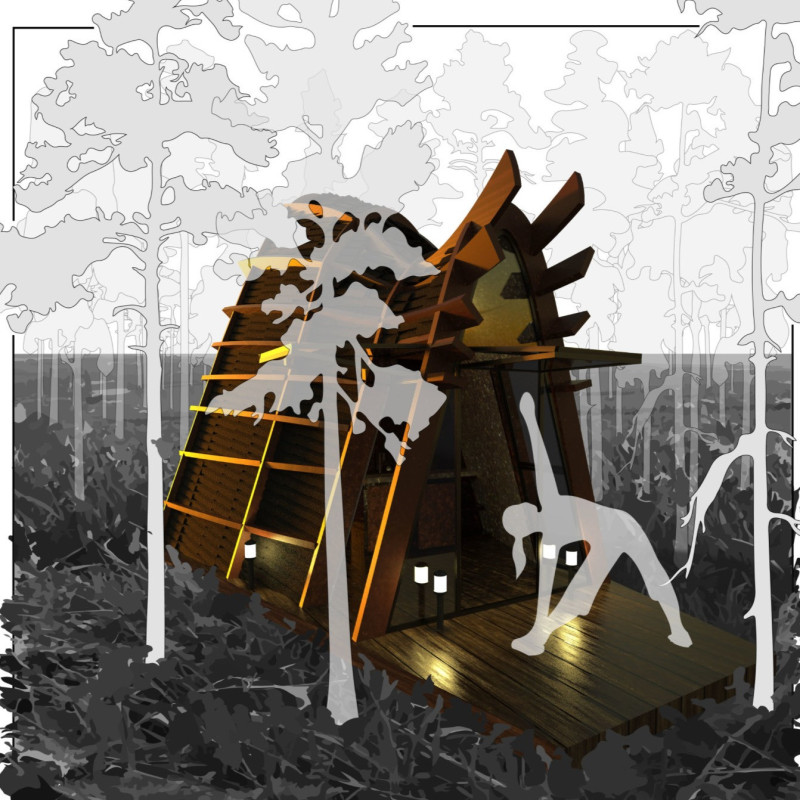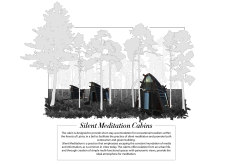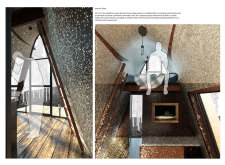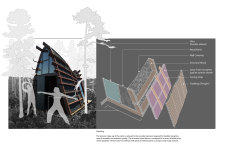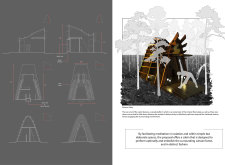5 key facts about this project
The Silent Meditation Cabins are designed as peaceful retreats in the forests of Latvia. They provide short-stay accommodation aimed at facilitating silent meditation. This architectural work aims to create a space where visitors can escape the noise of city life and connect with nature. The overall concept is centered around simplicity and functionality, ensuring that each cabin serves as a place of calm and reflection while offering essential amenities.
Spatial Organization
The interior layout includes a variety of multi-functional spaces that are both practical and supportive of meditation practices. Each cabin features a meditation floor, a kitchenette, and a bunk bed positioned above a bathroom and a water tank. This compact design allows for efficient use of space while maintaining comfort, creating an environment where visitors can relax and focus on their meditation.
Visual Integration
Panoramic views form an essential part of the design, as the cabins are oriented to take full advantage of the surrounding forest. This thoughtful consideration helps set a calming atmosphere, encouraging visitors to immerse themselves in nature. By fostering a connection with the landscape, the cabins enhance the overall experience of peace and tranquility.
Structural Design
The cabins utilize a wood frame structure characterized by bridle joints that link parabolic vertical columns to joists. This method ensures durability while maintaining a compact form. Large double-glazed windows are installed to illuminate the spaces with natural light and maintain thermal comfort throughout the seasons. Wood paneling on the walls complements the natural setting, reinforcing the connection to the forest.
Transition to Nature
At the rear, the cabins are designed with a raised platform that extends from the interior spaces and features vertical bi-fold doors. These doors facilitate easy movement between indoor and outdoor areas, allowing daily activities to flow naturally into the surrounding landscape. This design encourages a deeper engagement with nature, enhancing the experience of meditation and reflection in an environment that supports relaxation and inner peace.


